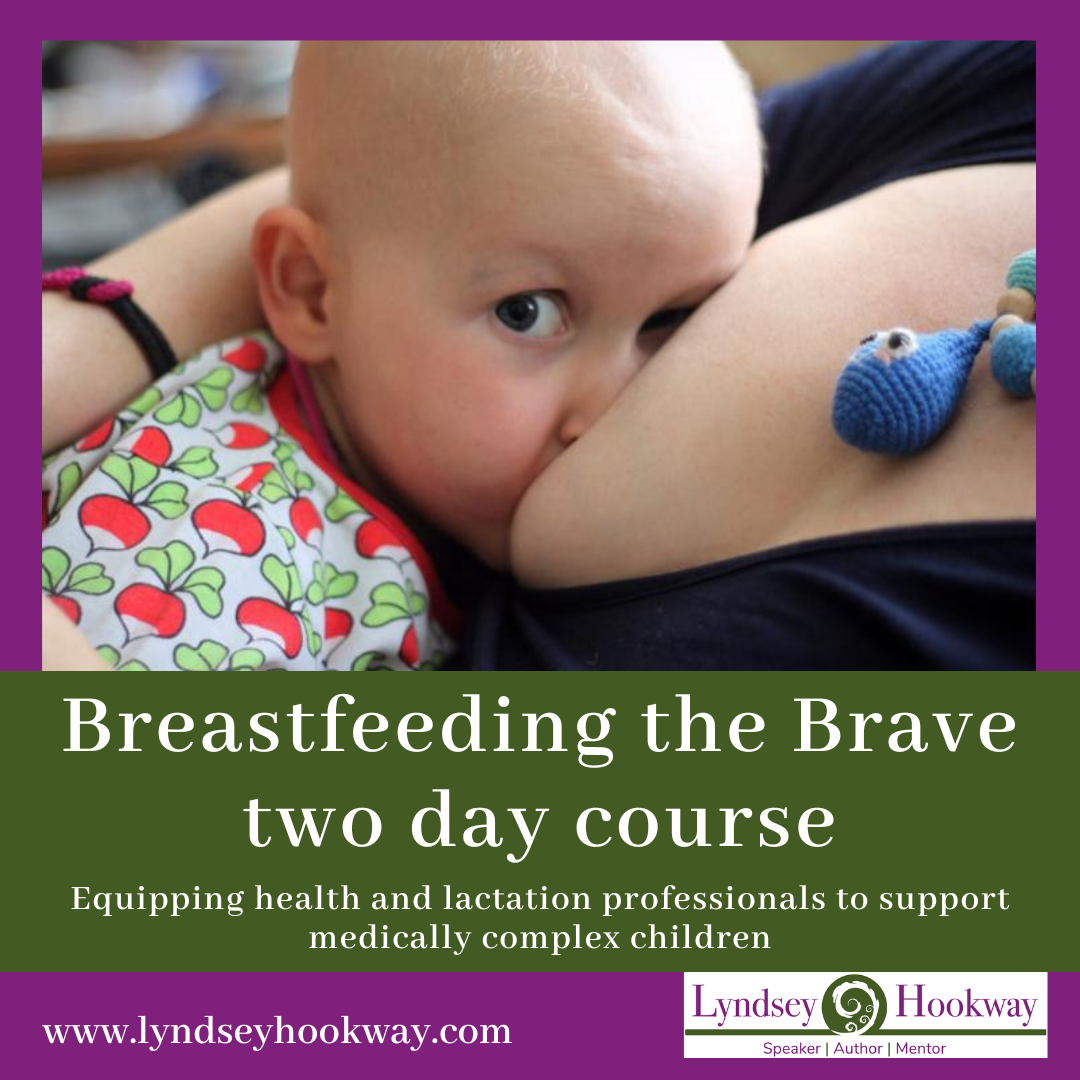Description
Equipping health and lactation professionals to support optimal feeding in medically complex children.
Duration: 1-2 days online (approx. 8 hours), self-paced. The content should only take one-two days to watch, however, you can pause, rewind and re-watch at your leisure. The course is split into 8 bite sized modules, making it easy to watch in small viewing sessions, rather than back to back. Once purchased, access to the course material is indefinite.
I also have multi-person user licences available. If you are interested in gaining access to the training for your whole department then please email me (lyndsey@feedsleepbond.com) with the size of your organisation.
- For up to 20 professionals, the licence is £1,000
- For 20-50 professionals, the licence is £3,000
CERPs: The course is approved for 7.5 L CERPs. You will be asked to complete a short multiple choice quiz at the end of the course, and upon successful completion, you will be provided with a certificate with the CERP registration number.
Speakers: The course is written and led by Lyndsey Hookway, with guest sections from 2 paediatricians – Dr. Ilana Levene and Dr. Vicky Thomas, a midwife, IBCLC and tongue tie practitioner – Carmelle Gentle, and a specialist speech and language therapist – Sarah Edney.
Who is this course for?
This course is intended to be watched by any professional who may come into contact with breast/chestfed infants and children with medical complexity. It is likely to support:
- Paediatricians
- GPs
- Paediatric nurses
- Community paediatric nurses
- Health visiting teams
- Allied health professionals working in paediatrics
- IBCLCs
- Breastfeeding counsellors
- Infant feeding leads
- Peer supporters
- University lecturers
- Medical and nursing students
- Nursery nurses
- Health care assistants
Course details: Many infants and children require medical care for acute or chronic illness. Breast/chestfeeding confers multiple benefits to children both in the short and long term. Breast/chestfeeding may shorten the duration and severity of illness and provide important immunological protection to potentially buffer children against hospital acquired infection. Breast/chestfeeding also provides pain relief, comfort, and normality during times of fear, pain, stress and difficulty for families.
However, maintaining breast/chestfeeding during hospital admission can be challenging, due to institutional barriers, difficulty accessing specialist support, and lack of information and training for health care staff.
While there is robust evidence about the needs of infants born prematurely, and a convincing and well-established acceptance of the importance of human milk for critically sick neonates, far less is known about the needs of older infants and children who develop illness or have ongoing health needs beyond the neonatal period.
This course will explore the profound ways in which breast/chestfeeding can support sick infants and children alongside medical treatment, introduce a model of collaborative working between medical, nursing and lactation professionals and make recommendations for practical ways in which breast/chestfeeding can be protected, preserved and promoted in the hospital setting.
The course draws both on my own research in this area, as well as other current and relevant research literature. It also links theory to practice with real-life examples, reflective stories and case studies.
Other course features:
- A resource file full of useful links, websites, protocols, references and books
- Bite-sized content
- 7.5 L CERPs available
- Guest features
- Case studies
- Scholarships and bursaries available for students/voluntary supporters within the hospital setting
- The course can be booked as a 2-day face to face training for large organisations on request
- Access to a private Facebook group to facilitate discussion and ongoing learning
Objectives:
- Understand the importance and meaning of breast/chest feeding sick and complex children to families
- Learn what the current gaps in policy and learning provision are
- Develop awareness of how supporting medically complex children differs from healthy children, or those in the neonatal setting
- Understand the vital importance of family centred care, and what this means as a lived reality
- Identify how to work with the multidisciplinary team to co-create practical feeding plans with families
- Reflect on how to balance feeding goals with clinical priorities
- Learn what additional skills may be necessary to support certain groups of children
The course refers to worldwide literature, but my research is concentrated in the UK. Wherever possible I have made it clear whether I am referring to UK or worldwide data.
Module breakdown:
Introduction
- Why this subject is important
- Current education in infant feeding training in paediatrics
- Knowledge and experience gaps
- What health professionals want/need to know
- Understanding normal infant feeding
- Biological specificity of human milk
- Milk supply
- Milk removal
- Normal feed volumes
- How to identify effective feeding
- Normal infant feeding behaviour
- Common problems
- Tongue tie
- Breast/chestfeeding support
- Feeding fundamentals
- Why breast/chest feeding medically complex children is different
- What can go wrong?
- Definitions and prevalence of illness
- When problems present
- The parent experience
- Why breast/chest feeding medically complex children is harder
- Gaps and cracks in service provision
- A multi-disciplinary approach
- A vision for integrated care
- How to create a welcome for families
- Feeding assessments
- Balancing feeding goals with clinical priorities
- How to support a sick child in hospital
- Keeping milk going
- Pumping
- When parents choose to exclusively pump
- Storing milk
- Using donor milk
- Increasing milk supply
- When supplements/feeding pauses are medically necessary
- Indications for supplementation
- How to supplement
- Paced bottle feeding
- Elevated side-lying feeding
- At breast/chest supplementation
- Feeding tubes
- Non-nutritive sucking
- Getting back to the breast/chest after ventilation or tube feeding
- When feeding needs to be paused
- Pre-operative fasting
- Supporting feeding in specific circumstances
- Acute illness
- Low tone
- Higher caloric needs
- Metabolic illnesses
- Sleepy babies
- NICU graduates
- Post-operative children
- Sucking, swallow and seal problems
- Cleft lip/palate
- Lines, drains, splints, casts
- Critically sick children
- Children with cancer
- Fluid restricted/monitored children
- Emotional, practical and family centred support
- The importance of encouragement
- Co-creation of feeding plans
- Valuing human milk
- Practical support
- Partners, siblings and special people
- Tandem feeding
- Deciding to stop breast/chest feeding
- Lactation after loss
- Family centred care tips
- Bonus content – case studies
- Prenatal diagnosis
- Diagnosis soon after birth
- Readmission
- Evolving illness
- Acute illness
- Later diagnosis
- Critical illness



